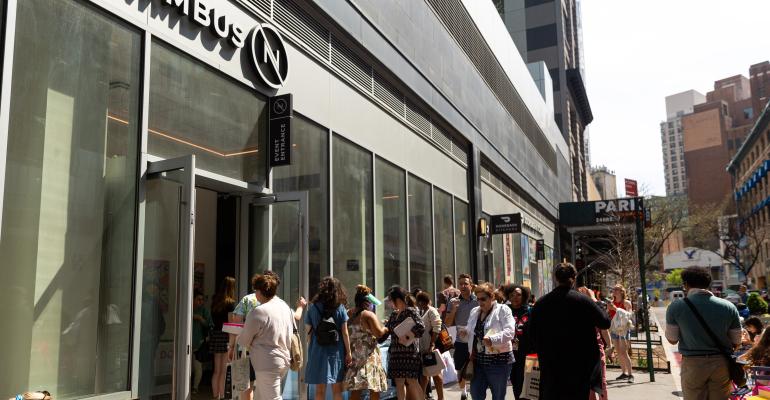While ghost kitchens were on the rise during the peak of the pandemic, Nimbus — a New York City-based, female-founded collaborative kitchen company — looked very different from its colleagues in the space.
Whereas most ghost kitchens could not be visited physically (or even readily identified on a delivery app), Nimbus operated as much as a community and events space as a delivery kitchen. Many ghost kitchen companies also launched their own virtual brands in addition to partnering with established restaurants, but Nimbus cofounder and CEO Camilla Opperman Morse decided to forego being an operator, and instead focus on perfecting the commissary kitchen in a “WeWork” type of environment.
Now, five years after its launch, Nimbus has four New York City locations (three in Manhattan and one in Brooklyn), and Opperman Morse is taking the company to a new city for the first time. Nimbus will soon open in the former Le Cordon Bleu space in Chicago, and the goal is to eventually grow to the “anti-ghost kitchen” company to all major metropolitan areas across the United States.
“We are providing affordable, flexible commercial kitchen space to food businesses to run their off-premises productions in the hopes of lowering the barriers to entry of… building out their own space,” Opperman Morse said. “It’s really a way for brands to scale and launch in a capital efficient and low-risk way, which has been core to our identity since 2019.”
Even though the Nimbus spaces are ideal for startups or smaller businesses that want to test the waters in a new market, the company gets a wide variety of clientele, “from Noma to Little Caesar’s,” Opperman Morse said. Brands also have the flexibility of choosing the type of rental they want, from four hours (if they want to run a special event), to four years (if they want to build a permanent off-premises home), and everything in between.
Kitchen rentals at Nimbus come with access to facilities, equipment maintenance, food safety monitoring, basic equipment, and Wifi, to name some of the main assets. Operator partners also have access to front of house space, where Opperman Morse said they ran 265 events last year.
The Nimbus team chose Chicago as the next phase of expansion because it’s well-known as a food city with a “strict regulatory environment and high cost of real estate,” which might be prohibitive to businesses just starting out.
“There are a number of cities around the country where it's much easier to open a kitchen or it's much cheaper to get your own space,” Opperman Morse said. “So, we would not necessarily be solving as much of a problem in those markets.”
Over the past five years, she has watched as other ghost kitchen, virtual restaurant and other adjacent businesses have failed or been acquired by other companies. Opperman Morse said that they stand out by avoiding some of the pitfalls of these companies—namely being a tech company first or trying to be a jack of all trades within in the off-premises business.
Opperman Morse said that this is the major reason why Nimbus has not started its own concepts, nor has the company tried to be a traditional incubator with financial support for startups. Instead, the Nimbus team has carved out its own niche for brands that are looking to rent out a space with resources to become more than just a typical dark kitchen.
“Ghost kitchens have gotten a lot of bad press, and I think rightfully so,” she said. “Many of these vertically integrated kitchens tried to grow too quickly and were trying to do too many things at once: running a kitchen, developing tech products, and launching virtual brands…. We’ve always emphasized the in-person hospitality element of our business, and… I think that in-person interaction and bringing hospitality back into the equation is key.”
Over the next five years, Opperman Morse hopes to grow Nimbus to 50 locations in new cities, with a focus on expanding methodically without burning out.
Contact Joanna Fantozzi at [email protected]





